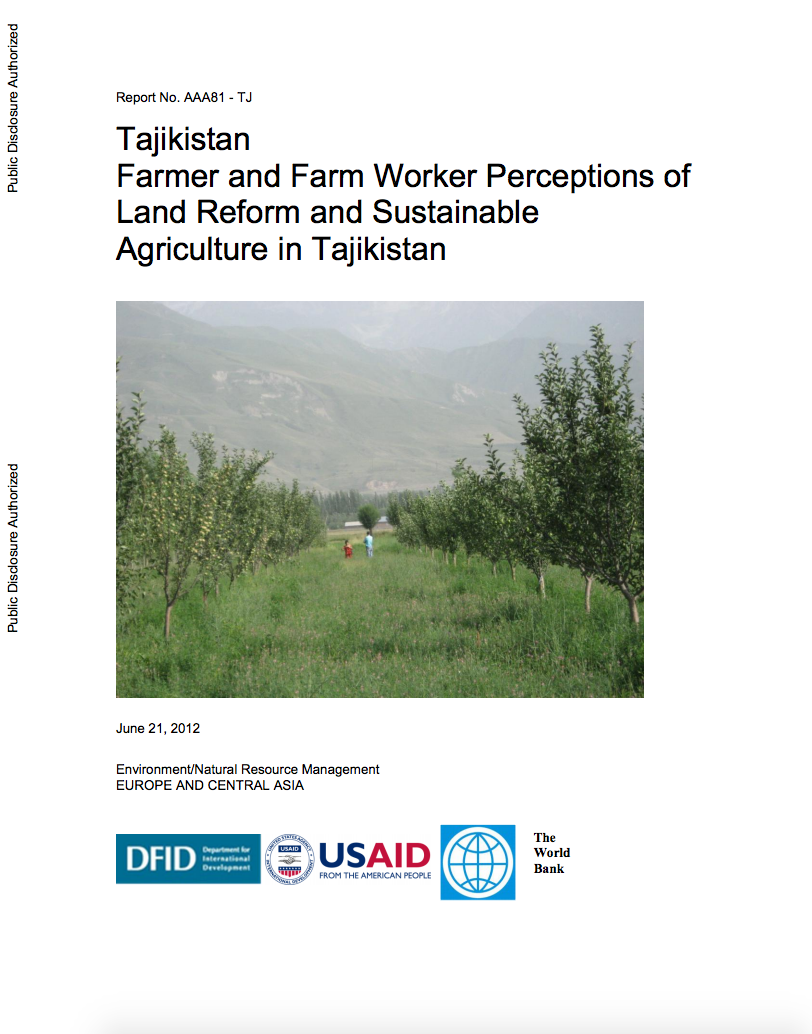Resource information
The objectives of the study are to
assess the impact of operational efforts in farmland
restructuring and sustainable agricultural land management
on vulnerability amongst rural households in Tajikistan; and
to provide context and improve strategies for current
operations in land reform, rural growth and sustainable land
management given the challenges of economic transition,
institutional, economic and environmental fragility, and the
emerging risks of climate change. Low levels of assets and
capabilities, as well as unsupportive institutional
arrangements, constrain the options of the rural poor. Rural
vulnerability both affects, and is affected by, household
and community access to and use of land and other natural
resources. Considerable theoretical literature can be found
on the relationship between environmental management of
agricultural production and rural vulnerability. This study
examines the results and synergies of operational,
field-level interventions in land tenure, sustainable land
management and agricultural production. Limited management
control over farmland, land degradation and low levels/low
diversification of other assets are considered to be key
drivers of rural vulnerability. A key focus, therefore, is
to examine the effectiveness of strategies resulting from
interventions to improve the incentive framework for farmers
to help ensure livelihood security. The study seeks to
examine linkages between operational efforts to secure
family-based land tenure and other agricultural livelihood
asset accumulation, and capacities to respond to shocks and
stresses as seen in perceptions held by farmers and farm
workers, in entrepreneurial behavior and adoption of
sustainable land management practices. In the post-Soviet
context, land-related family/household-based rights and
responsibilities are considered particularly important
motivations for sustainable natural resource management and
building rural resilience.


